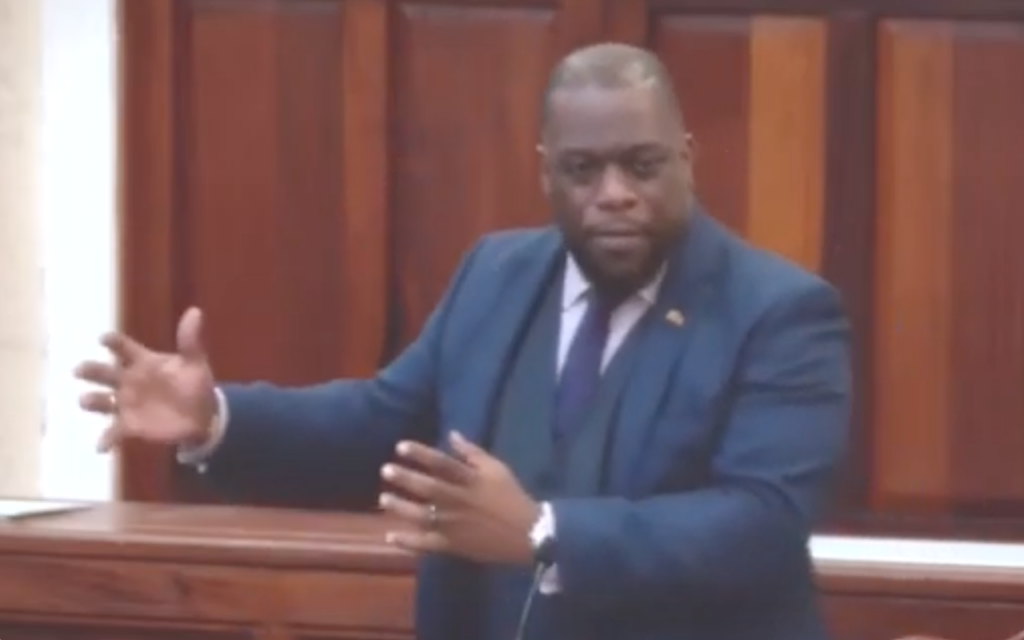New hotels and high-rise condominiums are pushing too close to the shoreline and eroding the natural character of Barbados, a United Nations climate advisor has warned, calling for a new approach to development that puts sustainability before profit.
Delivering her feature address at the Barbados Youth Climate Action Summit and Expo at the Lloyd Erskine Sandiford Centre on Wednesday, Ashley Lashley said that while new hotels and high-rise condos are being celebrated as symbols of progress, they represent a troubling disregard for environmental preservation.
“When you drive around Barbados, what do you see?” she asked. “I see hotels and condos growing taller by the week, restaurants creeping closer to the beach, and progress they call it — but progress for whom?”
Lashley expressed deep concern that coastal development is erasing the very beauty that defines Barbados.
“When I stand on the shore, I just see waves and the disappearing space for our children to run barefoot. I see erosion eating away at what made this island home. And I can’t help but wonder, how many more beaches do we have to lose before we realise that development without sustainability is just destruction dressed up in concrete?”
The event was attended by stakeholders in human and environmental rights, as well as students from several schools across the island.
Lashley said Barbados has built an economy that rewards extraction, not protection, and urged citizens and policymakers to rethink how progress is measured.
“We celebrate every new building, every ribbon cutting,” she said. “But where’s the ribbon for the reef that died last year? Where’s the applause for the mangrove that quietly protects us from floods? We call it progress when we pour another slab of concrete, but let’s be honest — it is capitalism dressed up as development.”
Lashley, who also serves as executive director of the non-profit Ashley Lashley Foundation, said the country continues to treat nature as a commodity rather than a life source.
“The truth is that capitalism without conscience has brought us here. We turned the earth into an invoice — every acre, every reef, every tree assigned a dollar value. And when the profits dry up, we move on to the next resource,” she declared.
She argued that the true cost of this model is already visible across the island: “Here in Barbados, we don’t need a balance sheet to see our cost. We live it. We’ve watched droughts threaten our farmers and food security. We’ve felt record-breaking heatwaves that have made classrooms unbearable for children. We’ve endured hurricanes growing stronger, faster, more unpredictable”
Lashley concluded with a call for national accountability, urging leaders and citizens alike to act before it’s too late.
“The issue is not whether climate change is real,” she said. “The issue is how much longer will we allow the logic of profit to outweigh the logic of survival.”
Also addressing the summit, Selwin Hart, special advisor to the UN Secretary-General on climate action and just transition, warned that the Caribbean is “paying the highest price for a crisis it did not create”, with storms and other climate extremes becoming “more intense, more frequent, and more unpredictable”. Yet he praised the region’s response.
Hart said: “Despite these injustices, the Caribbean is showing extraordinary leadership. Communities are pioneering solar resilient microgrids, mangrove restoration, and climate-smart farming. We are becoming living laboratories of resilience and innovation.”
Calling for unity and urgency, Hart urged young people to continue “speaking truth to power”, “piloting solutions”, and “raising a strong collective Caribbean voice that commands global attention”.
“The world is watching the Caribbean,” he said. “Let us step forward together beyond talk into bold action. Let us transform vulnerability into leadership and injustice into momentum for change.” (LG)
The post Unchecked coastal projects threaten Barbados’ identity, says UN youth advisor appeared first on Barbados Today.


